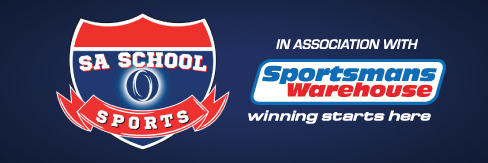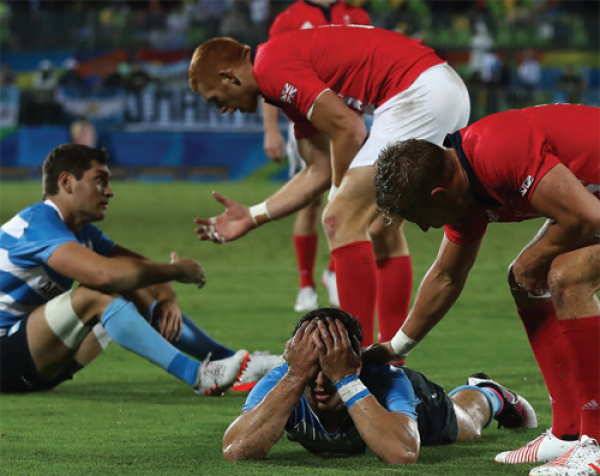A challenge to all school leaders… to maintain the dwindling ‘Old-School respect’ in what has become semi-professional school sport in South Africa.
So much has been said and written about this particular topic in recent years, and yet we seem to be losing our footing with regards to the educational philosophies that should be at the very centre of school sport. We have developed a semi-professional approach in South Africa which is possibly following a global trend. I think there might be an argument that we have not coped as well with these changes though. With that type of approach comes so many positive outcomes, but it also carries some severely negative baggage. Again, I find myself asking the same question:
Are we losing the most important aspects of school sport?
Sport touches something deeply entrenched in many of us. I am one of those very strange individuals, who loves to sit overlooking a cricket field three hours before the start of play. Invariably you have the sun rising which warms the chill in the air, a passionate groundsman religiously rolling and marking his pitch. That kind of imagery links up with the anticipation of an imminent battle ahead.
A calm serenity before a fierce storm. If there is something seriously wrong with you, you might even find the hairs on your arms rise when you take in all of these senses, as you anticipate what is to come. Possibly an fired up Allan Donald bowling the spell of his life to a resolute Michael Atherton. Combine this aura of sport with the spirit that the game is supposed to be played in, and you have my personal view on what sport is about.
Sport is also an incredibly powerful educational tool, never-mind an art form that needs to be respected. We can all be incredibly competitive, and winning is always of paramount importance; but never at the neglect of our pedagogical values. I see teams and schools write up all these values on walls and on manifestos, but without action those values cease to have any significance in how we play sport.
The infamous ‘grey area’
It is maybe understandable then, that I am as worried, with regards to where school sport is heading. I am probably the most guilty when it comes to taking school sport too professionally, but I also have very strong foundations in sport which can only be described as ‘an old school approach’ with regards to discipline and respect. One of my core philosophies behind coaching, is to continue searching for Bob Woolmer’s ‘one percentage advantages’. Video analysis, use of technology, tactical awareness, training of physical and mental elements etc are all components where we can treat our sportsmen and women in a more professional manner, to gain an advantage over an opponent.
The basis of this message is rather the infamous ‘grey area’ where coaches, parents and players bring the game into disrepute; where we go one step too far in search for victory. It is within that grey area that we find ‘the line’. This is a topic I have often raised and not for a second would I pretend that the school I am at, always gets this right and so this message is not intended to throw the proverbial stone from a glass house.
The previous FIFA World Cup had produced some amazing moments and contests. Elite players are put on pedestals as role models with their actions mimicked across the world, and with that has to come responsibility. Likewise, on a smaller scale, that responsibility also lies with players representing our schools at first team level.
‘Role models’ are overpaid, egotistical athletes with a very poor value and moral system
My personal enjoyment of that particular World Cup was marred by the behaviour of players which was highlighted in various media platforms. It showed a significant weakness within Fifa’s leadership, where the most expensive players in the world constantly fake injuries and manufacture fouls, in an attempt to win free kicks and sway the result of matches. I get disturbed when I am told that is ‘part of the modern game’. Not to mention the abuse some of these players feel that they can give referees at any stage. And these are our role models for sporting success?
In many cases our ‘role models’ are overpaid, egotistical athletes with a very poor value and moral system. Why are coaches not yanking players from the field when that replicate this behaviour at school level? Why are headmasters not instructing coaches to do so? More importantly, why do players feel that they can behave like that in the first place?
I have seen the growing trend where school players abuse each other in an incompletely inappropriate manner. It is very easy to refer to a particular meltdown in the professional sporting world which saw players banned for years, and the signs of that type of behaviour are quite evident on our school fields. That breakdown or erosion of positive team culture can very easily take place in our schools.
We have seen the growing presence of coaches and assistant coaches verbally abusing officials on a regular basis. Winning at all costs seems to have also become ‘part of the modern game’. It has intertwined itself into the culture of school sport which is an alarming statement to say out loud. In many cases, parents are following that trend and I find this even more disturbing when it occurs in junior school fixtures.
Justin Langer in the wake and rebuilding phase of that meltdown, said: “This period will also present the team with a chance to reset. Our values. Our team culture. Our true north.” Maybe that is what we need in South African school sport. To find our True North again, and to re-evaluate our culture and values. In his words ‘character first, skill second.’ on the same meltdown, Mickey Arthur said that it was inevitable: “A deterioration of standards that would culminate in an incident so bad, so ugly, that it would shame the leaders of the organisation into taking drastic action to change the culture, or risk alienating fans, sponsors, broadcasters and other stakeholders.” One of his statements in that interview made me think of school leadership on this topic. He suggested that he had seen very little in the way of personal responsibility from the Australian camp and management. I get that same feeling with I look at the behaviour on and around our school fields, and don’t see too many leaders taking personal responsibility.
Like many coaches in our region, I have enjoyed attending the Powerade Performance Academy workshops in recent years. The 2018 event started with Gary Kirsten addressing this very issue. He questioned where school sport was headed and illustrated his concern with a story of what he had witnessed in an u11A rugby match earlier in that year. He was a spectator in a match, where the team he was supporting managed to defend for the entire match to somehow earn a remarkable 5-0 win, against a team that they should have comfortably lost to. That in itself is the reason we all play sport; the attraction of the underdog winning, is something that attracts us all to sporting contests. Sadly, he continued to recall how the opposition coach became louder and more hostile in the second half, as his ego started to take complete control. That team eventually had a player red-carded after throwing a punch out of frustration. A bizarre notion, when remembering this was an u11 rugby fixture.
Are we currently sitting on a watershed, where if we reach that threshold, that there might be no way back?
Paddy Upton mentions that ego does play a role in all coaches, but the ability to control your ego is crucial and is what separates the bad coach from the really good coaches. Kirsten, who has close links to Upton, then highlighted his question regarding the current space that school sport finds itself in. Winning has already become more important than anything else. How do we pull it back, and keep our value system from being completely lost.
Pressure mounts on coaches and in many cases professional coaches are employed to achieve the desired results. Sadly, maybe not all of those coaches fully embrace the educational side of working with school boys, and that approach combined with the intense pressure while striving for results creates an unhealthy environment. You just have to watch one morning of Saturday junior school sport to realise that we have gone badly awry somewhere. Throughout recent derby fixtures, I have listened to parents from all over our province berate referees and I have witnessed players abuse opponents as well as the officials. I have to then ask again, has winning at all costs become the most important element of school sport? Do coaches condone this kind of behaviour, and maybe even go as far as promoting this type of culture on the field?
Sadly, we have all seen too many examples of this, to come up with any other conclusion, than to admit this is actually happening. Are we currently sitting on a watershed, where if we reach that threshold, that there might be no way back?
Social Media is constantly reminding us of reasons for parents to stop constantly instructing young players in games as well as reminding us that weekend fixtures are not ‘World Cup matches’. Yet, we still see incredibly poor behaviour, where parents often live vicariously through their children, where coaches egos become more important than the welfare of their players and where players lose the importance of respect.
Losing respect for your opponents, officials or losing respect for the game itself, is what is eating at the core of school sport. I have challenged our boys and coaches to lead from the front in this regard, and try fight to maintain the beauty in sport. Hopefully in a small way our own community can have a positive influence on those we play sport against. Somebody needs to take a stand, and this responsibility needs to lie with school leaders. Sadly, in many cases some leaders are not strong enough to take on this challenge, with regards to Old Boy and parent communities adding pressure to get results.
Too scared to alienate an old boy contingent or a parent body
We are in the business of education, and if our coaches have uncontrollable egos which distracts from this philosophy, I will be the first person to tell them that they have chosen the wrong career. We need the unwavering support of our community to fully engage this topic, and to fully protect something as sacred as our school sport. And if school management teams are not strong enough to control and maintain that, they are also in the wrong positions. We need to bring back the respect in school sport and to do that, our schools need strong and decisive leadership. To quote Gary Kirsten one last time; to develop a strong and healthy culture within any organisation, we need to actively reflect on what we are doing on a daily basis. We need to bring those core values to life, and not leave them printed on the walls of our change-rooms. Our school culture needs to be reflected in our behaviour on the sports fields.
My challenge – what is your school doing to maintain a positive culture in sport? Are you stamping out unacceptable behaviour from players, parents, coaches and spectators? Are you strong enough? If you aren’t strong enough, step aside and let somebody else take control.
It has been an absolute privilege to work with some of the strongest headmasters in South Africa, but I have also seen others turn a blind eye, instead of confronting an awkward scenario. Too scared to alienate an old boy contingent or a parent body. As Mickey Arthur suggested, this will only lead to one conclusion. It is up to school leaders to determine where ‘that line’ is, and not up to coaches, assistant coaches, players, parents or old boys. Do your job – protect the culture within our school sport.





